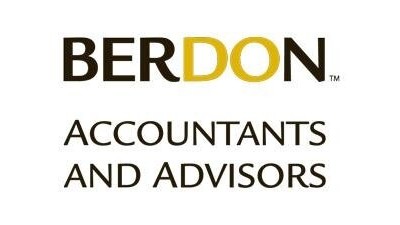How To Ensure Compliance With New York City Hotel Taxes And Fees

New York City hotels have become tax revenue targets, resulting in an increase in audit activity. New York City, with its 60 million tourists annually, is a lucrative hospitality market, with average occupancy rates near 90% most of the year, well above the national average. Government agencies generated an estimated $1.8B in 2015 from NYC hotels.
While hoteliers in neighboring Nassau and Suffolk counties on Long Island are required to collect a 3% hotel room occupancy tax and a $1.50/day hotel unit fee, New York City and State impose a host of other taxes and fees that may apply to transient occupancy or tourist use throughout the five boroughs, including areas of Queens and Brooklyn that border Nassau County. Although these taxes are subject to certain exemptions, the complexity of hotel occupancy tax laws makes it difficult for hotels to remain compliant. Bisnow caught up with Berdon LLP principal Terence Avella and Tax Supervisor Michael Gelbtuch for advice and clarity on some common, costly points of confusion.
Hotel Occupancy Tax And Fees

According to Gelbtuch, NYC hotel operators are required to charge a number of taxes and fees, which make local hospitality regulations more complex and less uniform than others leveled throughout the U.S. Charges include:
- NYC hotel room occupancy tax of 5.875%;
- NYC hotel room occupancy fee of $2/room for rooms priced at $40 or more; and
- New York State hotel unit fee of $1.50/day, which is reported and remitted on the quarterly sales tax returns.
Accounting for these taxes and fees can present difficulties and nuances for hotel operators. While this seems small on a standalone basis, costs can add up over time.
Banquet/Social Halls And Conference Rooms

“Generally, hotel room occupancy taxes must be charged on the rental of any room in a hotel,” Avella said. “However, if a room has been certified as a place of assembly by the Department of Buildings, or if a banquet or catering contract indicates the expected attendance to be over 75 persons, or 200 in the case of a rooftop lounge, it will be considered a PA [Place of Assembly] and exempt from the hotel occupancy tax on that space.”
A hotel must receive an inspection from the NYC Fire Department before obtaining a PA Certificate from the NYC DOB. Unfortunately, PA Certificates are not always accepted as blanket exemptions.
The DOB provides the PA Certificate on the space as a whole. If a room is converted into several smaller rooms by any subdivision, such as folding walls, partitions, curtains, doors or even plants, each room must qualify independently as a PA with separate certificates.
Hotel occupancy tax auditors are required to test PA Certificate validity, and will typically view a month of folios to determine if separate events occurred in the same space simultaneously. If this is the case, the PA Certificate will typically be deemed invalid.
Complimentary Rooms

According to Avella, hotel operators are not required to charge or accrue any hotel occupancy taxes for complimentary rooms provided to family members or employees, provided the complimentary room is not considered wages for federal income tax purposes.
In the case of complimentary rooms provided to travel agents, musicians, photographers, florists and any other contractor or vendor who procures future business for the hotel, the hotel operator must charge or accrue hotel occupancy tax on the normal daily price of the room.
Hotel Rewards Programs

Rewards programs present another nuanced area in hotel occupancy taxation. Because of the redemption and reimbursement process that takes place with rewards programs, the hotel does not receive actual rent from the guest for the complimentary room. Thus, the hotel operator is in most cases not required to charge hotel occupancy tax to the rewards program.
NYC hotel occupancy taxation is intricate and complex. These rules should be implemented in an establishment's point-of-sale systems to ensure the proper hotel occupancy tax is charged. Even minor mistakes can generate significant assessments upon audit due to the volume of transactions that occur.
To learn more about this Bisnow content sponsor, click here.

